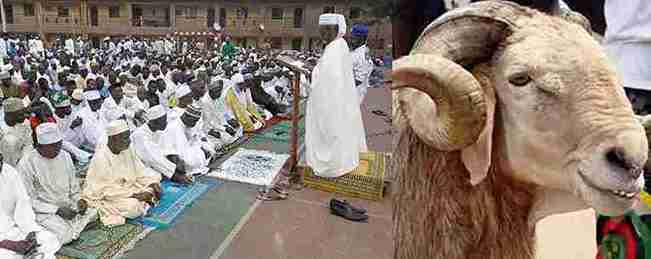Ileya, also known as Eid al-Adha (Festival of Sacrifice), is one of the most important celebrations in Islam. It is marked by prayers, family gatherings, and the ritual slaughter of a ram, cow, or camel in honour of Prophet Ibrahim’s (Abrahamās) unwavering faith in Allah.
In this article, we explore the history, religious meaning, and cultural significance of ram slaughter during Ileya, especially for Muslims in Nigeria and around the world.
š The Origin of Eid al-Adha (Ileya)
The story of Eid al-Adha dates back to the time of Prophet Ibrahim (AS). According to Islamic belief, Prophet Ibrahim had a dream in which Allah commanded him to sacrifice his beloved son, Ismail (AS).
Though it was a painful test, Prophet Ibrahim obeyed Allahās command. Just as he was about to sacrifice his son, Allah replaced Ismail with a ram, showing that the real test was Ibrahimās obedience and submission.
This act of faith became the foundation of Eid al-Adha.
š Why Do Muslims Slaughter a Ram?
The slaughter of a ram or other permitted animal during Ileya is a symbolic act of Prophet Ibrahimās devotion. It is not just a ritual ā it is a spiritual lesson in:
Obedience to Allah
Faith and trust in divine will
Sharing blessings with others
Muslims who can afford to perform the slaughter are encouraged to do so after the Eid prayers. The meat is then shared in three parts:
- One-third for the family
- One-third for friends and neighbors
- One-third for the poor and needy
This promotes generosity, community spirit, and support for the less privileged.
š The Link with Hajj
Ileya Sallah is also tied to the Hajj pilgrimage in Mecca. Every year, millions of Muslims perform Hajj, and on the 10th day of Dhul-Hijjah (the last month of the Islamic calendar), they also carry out the animal sacrifice.
For Muslims who are not performing Hajj, the same act is done at home or in the community. This shows that Ileya is both a local and global celebration of Islamic unity and faith.
š§¼ Rules and Etiquette of the Sacrifice
Islam has set guidelines for how the animal should be treated and slaughtered. Some of the rules include:
The animal must be healthy, mature, and free from defects.
The person performing the slaughter must be a Muslim and must mention āBismillah, Allahu Akbarā (In the name of Allah, Allah is the Greatest).
The animal should be slaughtered with kindness and not made to suffer.
Cleanliness and hygiene must be observed before, during, and after the slaughter.
This shows that Islam emphasizes mercy, responsibility, and cleanliness, even in ritual acts.
š Ileya in Nigeria: Cultural Flavor
In Nigeria, especially among the Yoruba, Eid al-Adha is commonly called āIleyaā, which means “homecoming.” This is because many people travel back home to celebrate with family.
It is a time for:
Wearing new traditional outfits (aso-ebi)
Visiting elders and friends
Cooking delicious meals with ram meat
Giving gifts and showing hospitality
Holding parties and community feasts
In some towns and villages, local festivities and cultural performances accompany the religious celebrations, blending Islamic spirituality with rich Nigerian culture.
š Lessons from Ileya Sallah
Ileya is more than just celebration and meat. It teaches Muslims and non-Muslims alike:
The power of faith and sacrifice
The importance of obedience to God
The joy of sharing and charity
Gratitude for lifeās blessings
Respect for life and responsibility in how we treat animals
Itās also a time to reflect on our relationship with God, renew family bonds, and remember the less privileged in our communities.
šļø Conclusion
Ileya Sallah reminds us of the deep roots of faith, sacrifice, and unity in Islam. While the slaughter of a ram is a central symbol, the greater message lies in our willingness to obey God, care for others, and give thanks for what we have.
As Muslims around the world celebrate this holy festival, let us remember the meaning behind the rituals and carry the spirit of love, generosity, and peace into our daily lives.
Eid Mubarak to all! šš

